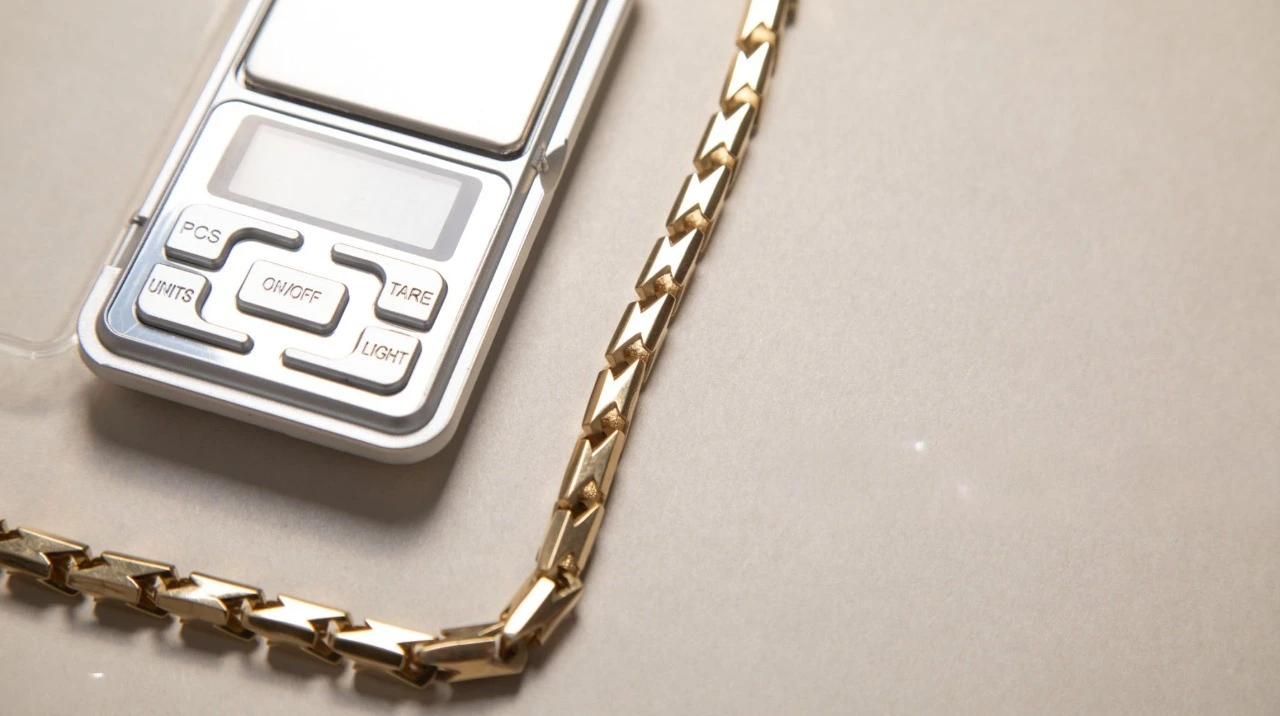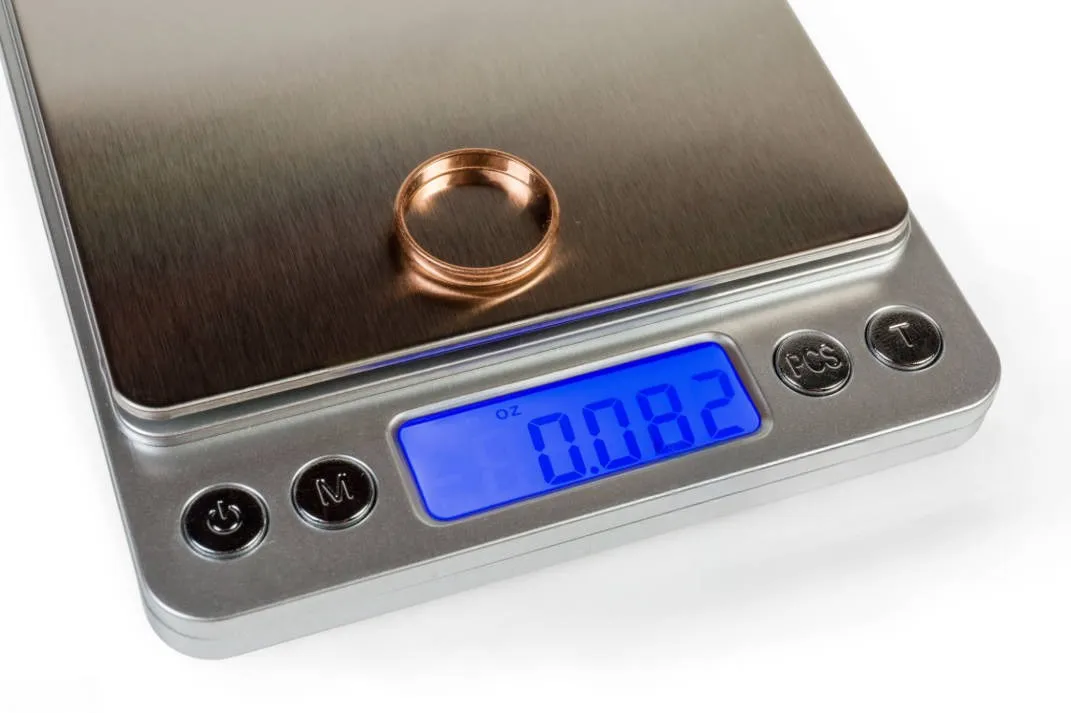When it comes to diamonds, every fraction of a milligram counts. A diamond’s weight significantly influences its value, often more than any other factor. To achieve pinpoint accuracy, jewelers rely on specialized instruments designed for the jewelry industry’s unique demands. So, what exactly do they use? The answer lies in highly precise digital scales, tailored to measure the minute weights of these precious stones.
Why Accurate Weighing Matters in the Diamond Trade
Imagine purchasing a diamond based on an estimated weight. Without precision, determining a fair price or ensuring you get what you paid for becomes impossible. Accurate weighing underpins trust and transparency in the diamond industry. Whether it’s a local jeweler assessing a stone for sale or a gemological laboratory certifying a diamond, precise weight measurements are essential.
Jeweler’s Scales: Not Your Average Kitchen Gadget
Unlike the scales you might use for baking or checking your weight, jeweler’s scales—often called carat scales or jewelry scales—are engineered for extraordinary precision. They detect minute weight variations that standard scales would miss. These tools are critical for several reasons:
- Minute Measurements: Diamonds are weighed in tiny increments, requiring scales sensitive to fractions of a gram.
- High Stakes: With diamonds priced per carat, even a slight weighing error can lead to significant financial discrepancies.
- Certification Standards: Reputable gemological labs, such as the GIA or AGS, demand exact weight measurements for certification.
Understanding the Carat: The Diamond’s Weight Standard
Diamonds and other gemstones are measured in carats (ct), a term familiar to many but worth clarifying. A carat is a precise metric:
- 1 Carat = 200 Milligrams (0.2 Grams)
- 1 Carat = 100 “Points”
The “point” system is often used for diamonds under one carat. For instance, a 0.50-carat diamond is called a “50-point diamond,” and a 0.25-carat stone is a “25-pointer.” For professional grading, jewelers weigh diamonds to the third, fourth, or even fifth decimal place (e.g., 1.00250 ct) to ensure unparalleled accuracy and precise valuation.
Types of Scales Jewelers Use
Jewelers rely on different types of precision balances based on their needs and the required accuracy level.
Digital Carat Scales (The Go-To Tool)
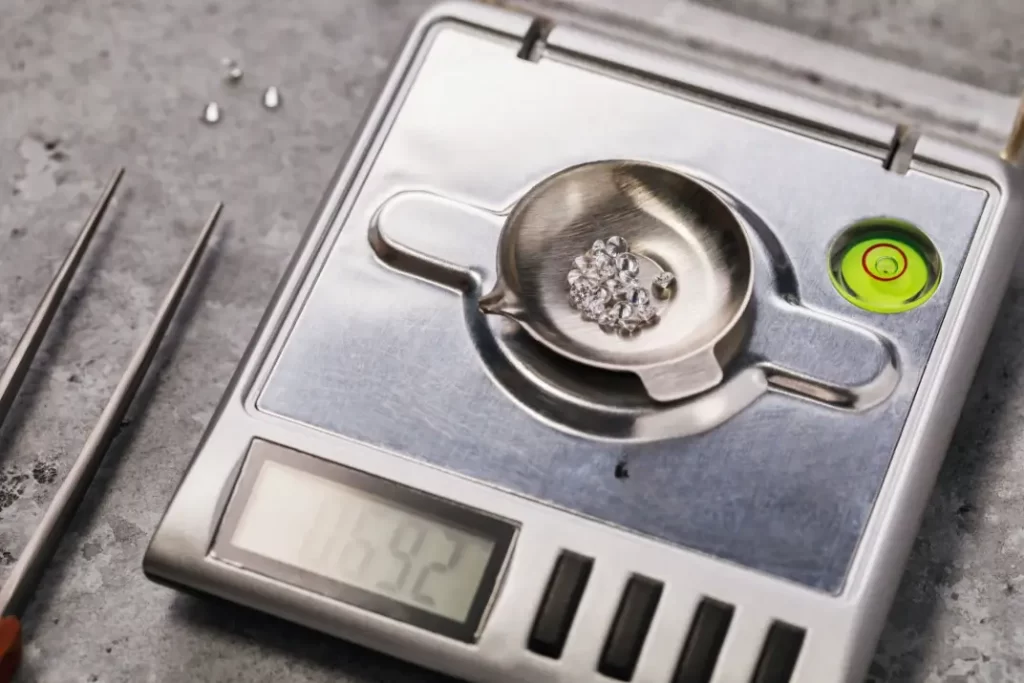
These are the workhorses of jewelry stores and workshops, offering:
- High Precision: Typically accurate to 0.001 ct or even 0.0001 ct.
- Digital Readout: Easy-to-read digital readouts for quick assessments.
- Portability: Some models are compact, ideal for mobile jewelers or appraisers.
Analytical Balances
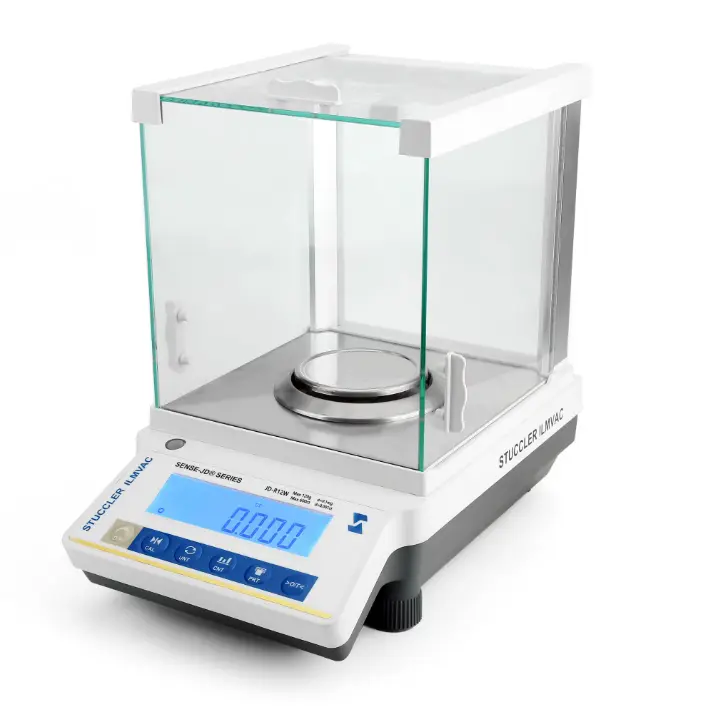
For unmatched precision, gemological labs and high-volume dealers use analytical balances, which provide:
- Exceptional Accuracy: Measurements to 0.00001 grams, enabling ultra-fine carat calculations.
- Draft Shields: Enclosed chambers to block air currents that could skew results.
- Advanced Features: Internal calibration, statistical tools, and connectivity options for data tracking.
Portable Jewelry Scales
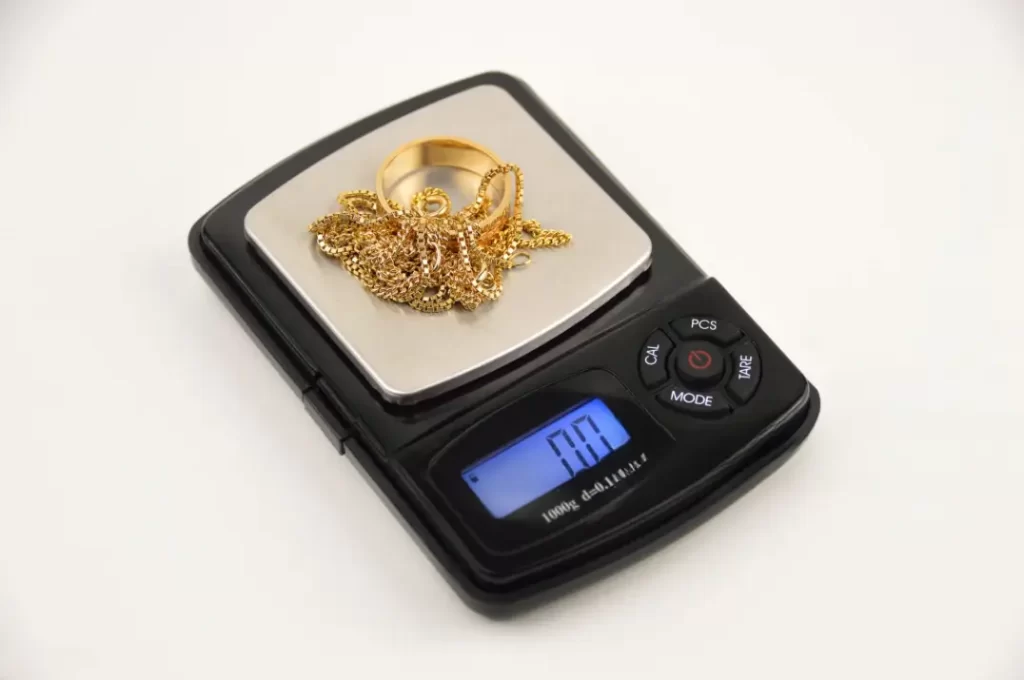
While less precise than lab-grade equipment, portable digital scales are handy for quick estimates or on-the-go assessments. They’re less suited for official grading but useful for initial sorting.
Essential Features of a Quality Diamond Scale
A reliable diamond scale must include specific features to ensure accurate measurements:
- Precision and Readability: Scales displaying more decimal places (e.g., 0.0001 ct) offer greater precision, critical for diamond valuation.
- Accuracy and Calibration: A scale’s accuracy reflects how closely it measures true weight. Regular calibration with certified weights ensures reliability. Many high-end models feature internal calibration for convenience.
- “Legal for Trade” Certification: In many regions, scales used for commercial transactions must meet strict regulatory standards, ensuring trust in sales.
- Environmental Stability: Temperature changes, vibrations, or air currents can affect readings. High-quality scales, paired with stable environments (e.g., draft-free spaces or anti-vibration tables), minimize these issues.
- Tare Function: This zeros out the weight of containers or trays, ensuring only the diamond’s weight is recorded.
Keeping Your Scale Precise: Calibration and Care
A diamond scale’s precision isn’t a one-time guarantee—it requires ongoing care. Proper maintenance and regular calibration are vital to ensure consistent accuracy, safeguarding your business and customer trust.
Why Calibration Matters
Even top-tier scales can drift due to environmental factors, frequent use, or wear. Calibration aligns the scale with a known standard, ensuring accurate measurements.
- Consistent Accuracy: Regular calibration ensures every diamond’s weight reflects its true value.
- Legal Compliance: “Legal for Trade” scales often require routine calibration and periodic verification by certified professionals.
- Financial Protection: Inaccurate weighing can lead to costly errors, such as overpaying for inventory or underpricing diamonds.
Best Practices for Scale Maintenance
To keep your scale in top condition, follow these tips:
- Daily Calibration Checks: Start each day with a quick calibration, especially before critical weighing tasks, to confirm accuracy.
- Use Certified Weights: Rely on NIST-traceable or OIML-certified calibration weights that match your scale’s capacity for precise calibration.
- Keep It Clean: Dust or debris can skew readings. Use a soft brush or air blower to keep the weighing pan and surrounding area spotless—avoid abrasive materials.
- Maintain a Stable Environment: Place the scale on a level, sturdy surface, away from drafts, sunlight, or vibrations (e.g., from foot traffic or machinery).
- Handle Gently: Precision scales are delicate. Avoid jarring or dropping them, and follow manufacturer guidelines when moving them.
- Store Properly: Cover the scale when not in use to protect it from dust. For models with draft shields, keep them closed.
- Professional Servicing: For high-precision balances or suspected inaccuracies, schedule periodic servicing by a qualified technician for deeper diagnostics.
By making these practices part of your routine, your diamond scale will remain a dependable tool for years.
Beyond the Scale: Tools for Comprehensive Diamond Assessment
While the carat scale is central, jewelers use complementary tools for a complete diamond evaluation:
- Diamond Gauges: These measure a diamond’s dimensions (length, width, depth), which can help estimate carat weight for stones set in jewelry where direct weighing isn’t feasible.
- Microscopes and Loupes: These tools assess clarity, cut quality, and inclusions that impact a diamond’s value.
Conclusion: The Precision Behind Every Sparkle
Accurately weighing diamonds is a cornerstone of the jewelry industry, ensuring fair pricing, upholding standards, and building consumer trust. Carat scales are more than tools—they’re precision instruments vital to valuing and certifying these remarkable gems. Whether you’re a seasoned jeweler or a diamond enthusiast, understanding the care and technology behind diamond weighing highlights the meticulous attention given to every stone.
Ready to elevate your diamond measurements? Explore our range of high-precision jewelry scales designed for professional use.


